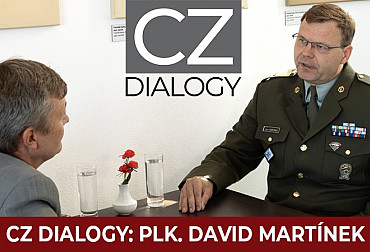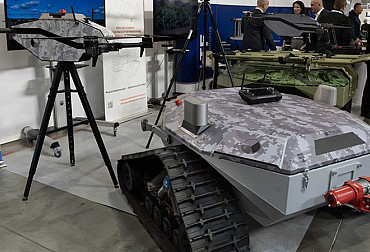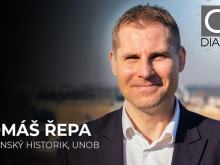Tomáš Řepa: Russia's intense war is taking its toll elsewhere
The war in Ukraine has been ongoing for three years, exacting a daily toll. In the search for peaceful solutions, the recent Munich Security Conference highlighted two approaches to resolving the Russia-Ukraine conflict within the North Atlantic Alliance: the American and the European (EU countries) perspectives. Both approaches have recently gained momentum. A meeting between U.S. and Russian representatives is being prepared in Saudi Arabia, while French President Emmanuel Macron seeks to discuss a joint strategy with some EU states. At the same time, it is becoming increasingly clear that the influence of major powers after the conflict in Ukraine will be greater than we can currently imagine. This was just one of the topics we discussed in the latest episode of our CZ DIALOGUES program with Tomáš Řepa, a military historian at the University of Defence and Masaryk University in Brno.
Video: Interview with military historian Tomáš Řepa / CZ DEFENCE
"It is not as fluid as World War II, where the air force played a decisive role, alongside massive artillery strikes and the movement of tank units. However, it is not entirely classic trench warfare either, as some troop mobility remains. You can see that the enemy can still be caught off guard. This is evident in how the conflict has expanded into larger maneuvering areas, as seen in the Kursk region, where the Ukrainians continue to resist. Such movements were almost impossible by the end of World War I," says Řepa. It is also difficult to pinpoint Russia’s true objectives in this war. While territorial gains are a factor, Řepa argues that Russia’s history of governance over conquered lands—such as parts of Finland—demonstrates that it is not an effective administrator.
Thus, multiple motivations must be considered: territorial expansion, resource control, and influence over other European countries. "It is also a struggle over an imperial past. However, it must be stated outright that by worsening its present, Russia is losing its future. It seeks the grandeur of a new tsarist system. In reality, Soviet rulers always aimed for something similar—empire. And the Kremlin has never hidden its desire to restore its spheres of influence. This is a serious issue that should not be taken lightly," warns Řepa.
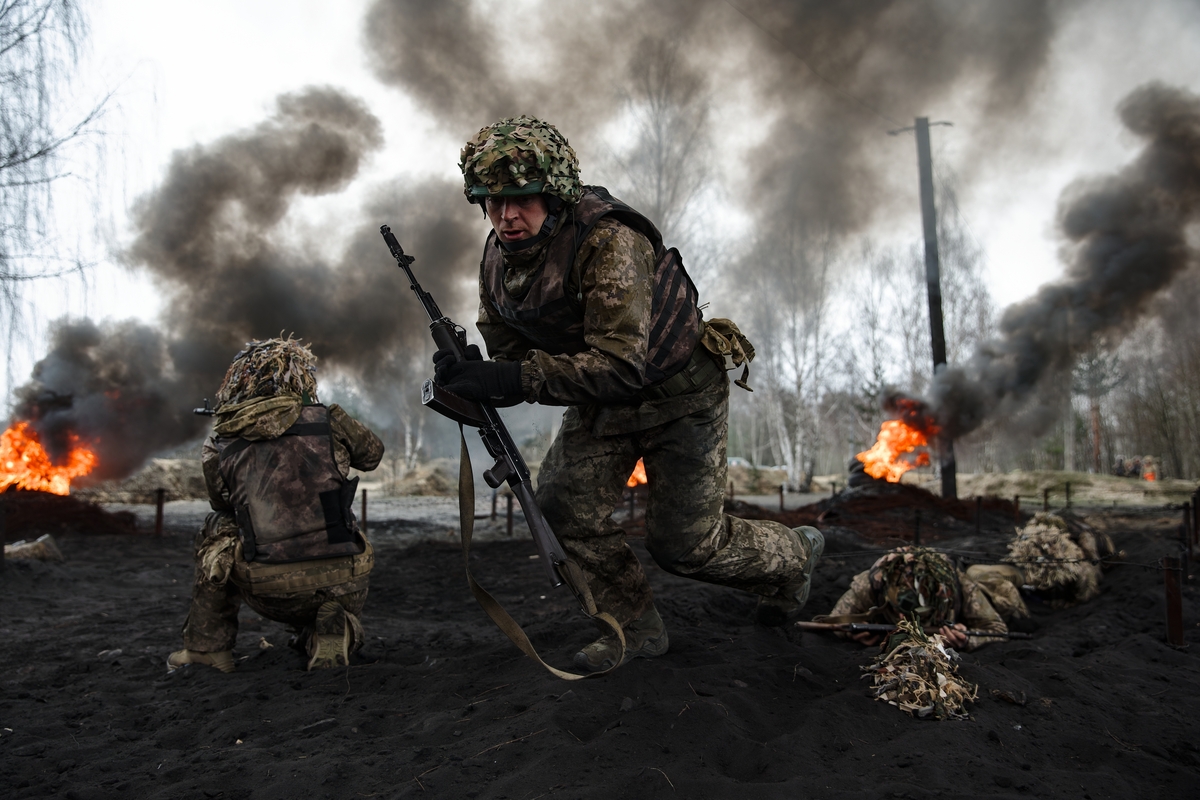
In the context of Russia's leadership, we touched during the conversation on the specific ways in which some presidents have governed. "That's interesting too, Gorbachev got to the head of the Soviet Politburo in part because he didn't say in advance that he was going to be a great reformer. He surprised a lot of people with that. The Soviet public didn't accept it and to this day he is still hated at home. Under Yeltsin, it was really a kind of post-transformation chaos. And Putin? He came up with the idea of going back to hard-line rule. We could see that in the way that the number of political dissidents increased and the punishments were toughened. And Navalny? It's now almost the one-year anniversary of his death. He paid with his life, and many others did too," the military historian points out. According to Řepa, it is tragicomic how often it happens that a top official of a certain company, for example, "falls out of the window" or has some other "accident". Such a typical example is the fate of Yevgeny Prigozhin. "As another example, here is a story from the life of J.V. Stalin: when Stalin was in his last exile, a stream in a village was swollen and many villagers drowned, even a horse drowned. Stalin was a little surprised and asked the locals how many people had died. They said, "We have enough people, but the drowned horse, that's a problem. We can't do without it," says Tomáš Řepa, describing the Russian mentality.
As mentioned in the introduction, the negotiations for peace in Ukraine have started on at least two fronts and we were wondering what role will Europe play in this situation? "We keep telling ourselves how weak Europe is. Unfortunately, it is weak because of the behaviour of politicians, but not because of economic and other parameters, which could be improved if we took more decisive steps," Řepa believes.
The role of the great powers, especially China and India, will also be important. If the other powers had not interfered in the current conflict, the whole conflict would have been resolved long ago, according to Tomáš Řepa. "Ukraine has been a rival for many centuries. It has always been in some imaginary sphere, at crossroads, in spheres of influence and so on. The Thirty Years' War could easily be a similar parable from history for Europe. A seemingly religious conflict where one power fought against another. When it was exhausted, another replaced it. That's how it is in the battle for Syria, for example, where it was also replaced. The palette was quite wide and they were all defending their interests in some way. Turkey defended one, Iran defended another, and so on. And in Ukraine it's actually very similar. Who would have thought that the North Koreans would be deployed in Ukraine? What do they have to do with Europe? What do they have to do with any conflict between Russia and Ukraine? Clearly nothing," says Tomáš Řepa in the interview.
At the same time, however, he points out that the participation of the North Korean army in Ukraine is a message to the South Koreans or Japan. "When the war in Donbass originally broke out, China was not happy about it, because it invested a lot in the fertile black land that is Ukraine, because the Chinese are an economic power more than a military power. From their point of view, the Russians made a mistake, and Russia is now just a raw material appendage, a vassal from China's point of view," says Řepa, who also recalls China's activities beyond the Urals and in the Far East.
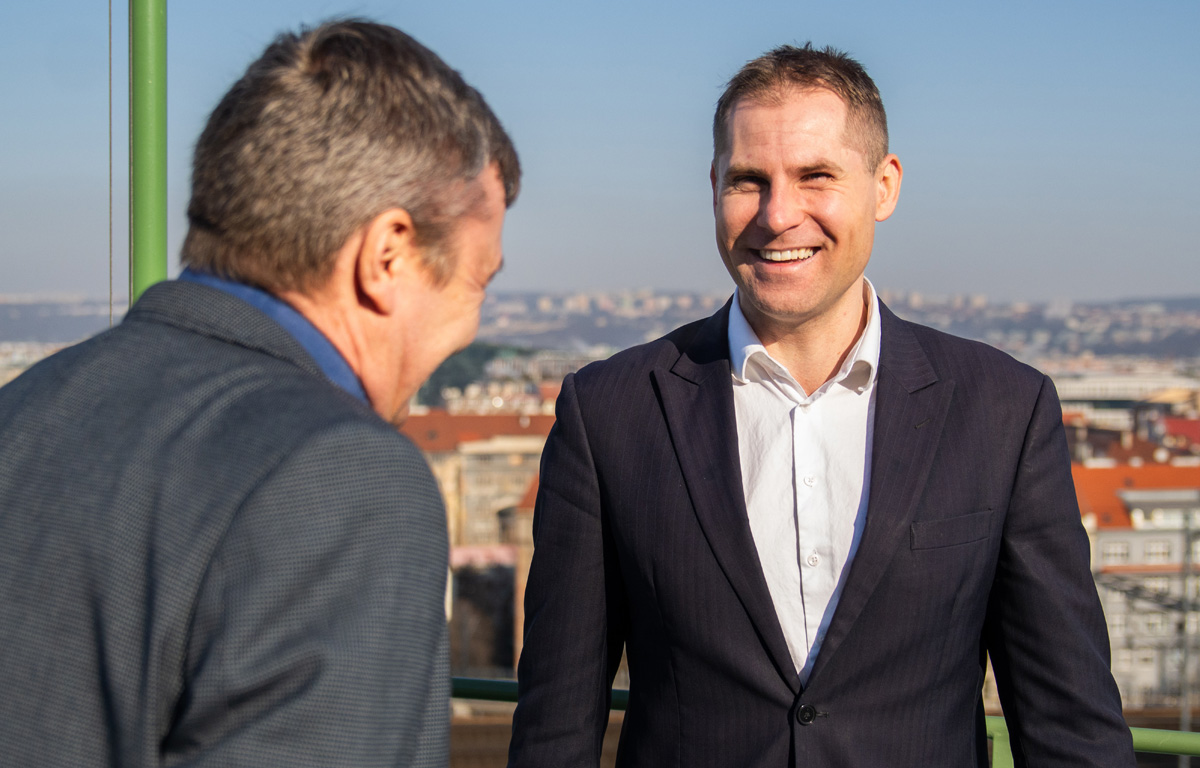
That is why it is certain that this conflict will rewrite the world political map, although not, apparently, in any new national boundaries. It is not only the territory of the current fighting in Ukraine, but also the Middle East and the Caucasus. "The intense war that Russia has chosen is taking its toll elsewhere. It will continue to manifest itself in the future, and it will not only affect the direct actors in this conflict," says historian Tomáš Řepa.
In the context of the conflict in Ukraine, we also discussed the influence of social networks and the media and the individual interests of the world powers. To learn more, listen to the full interview at the beginning of this article.















